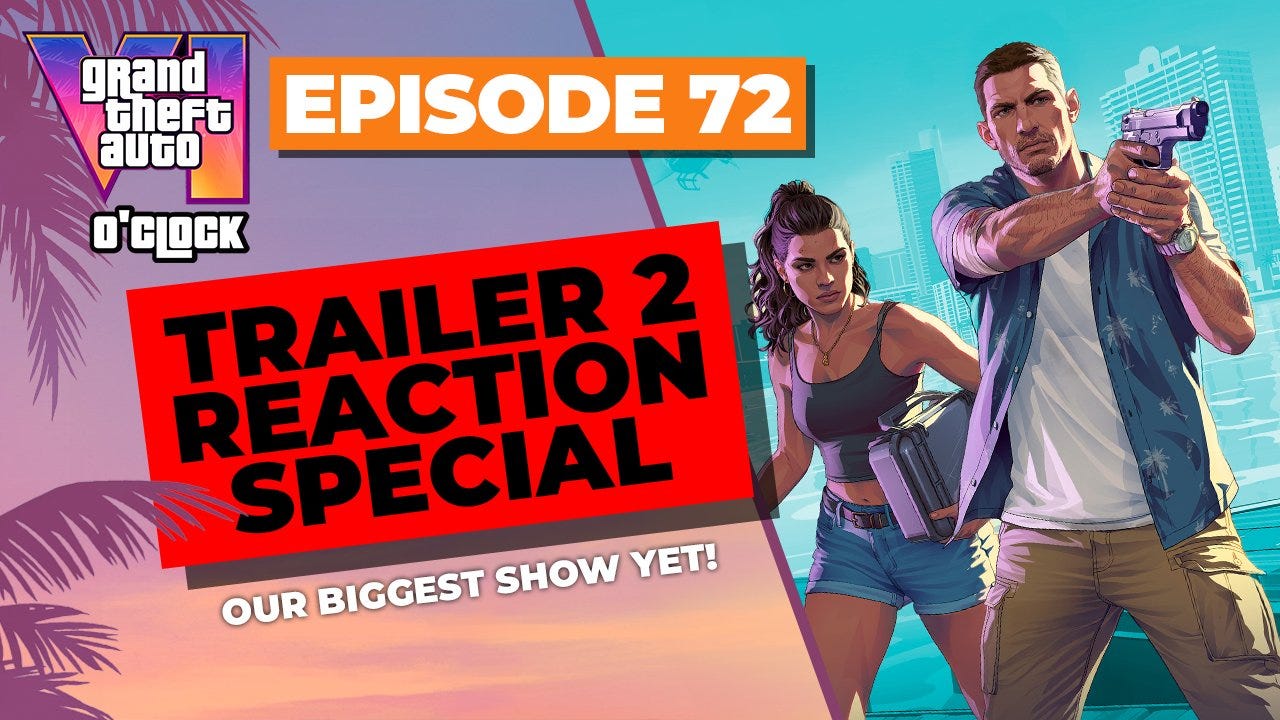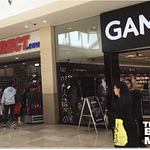Listen now on Apple, Spotify or YouTube
In This Edition
- The impact of AI on the media
- Are niche publications the future?
- Can subscriptions work?
- Breaking the Google dependency
- Plus! First speakers for The Game Business Live
Welcome back to another week on The Game Business.
Today, we have a bumper special on the video games media. Consolidation and redundancies have been as common in media as in development. But there are some potentially positive shifts, too. Giant Bomb’s move from corporate ownership to independence comes just a few weeks after GamesBeat did the same thing. And we’re seeing smaller, focused outlets cropping up all the time. Heck, you’re reading one now.
So we caught up with media giants Fandom and Future, plus independent outfit RPG Site, to talk through the state of things in this bumper 1-hour special, which you can watch above. Alternatively, you can read through the highlights below.
But before I go, I am thrilled to reveal our first speakers for our live show on June 9 in Los Angeles (part of Summer Game Fest). Leslie Benzies (Build A Rocket Boy), Lisa Burgess (Netflix), John Hight (Wizards of the Coast), Mat Piscatella (Circana) and Pete Wanat (AGBO) are all speaking at the event (and there’s more to be announced). Want to come? Click here to find out how (or scroll to the bottom of this email).
Enjoy!
8 Things We Learned From Our Games Media Special
1. It’s really, really hard right now
It’s never been harder to be successful in the games media. The bigger brands have cut staff and the mid-sized outlets have consolidated (or closed down entirely). Google’s algorithm’s changes continually play havoc, the ad market is extremely challenged, margins are squeezed and we’re seeing a brain drain in terms of talent.
“We are in an attention economy where there has never been more noise, less context, the rise of AI creates more duplication and distortion, and we, like everyone, are trying to carve our space within all of that,” said Future Publishing content director Dan Dawkins.
“The games industry itself is going through a difficult phase and perhaps it’s coming out the other side. But in games… somebody’s problem is everybody’s problem, because we are a very dependent ecosystem.”
2. Media publishers are eager to break their Google dependency
The media is over-reliant on traffic coming from Google, and that’s becoming a problem with the search engine continually shifting the goalposts.
“So much of media is Google dependent and beholden to whatever the whims of those algorithms are… that is the tale of the modern media age,” Dawkins tells us.
RPG Site owner Alex Donaldson agrees: “If [Google] decides it doesn't like you, it doesn’t like your ad presentation, or something about your design, whatever… [it can punish you]. And a lot of this is not decided by a human. It's decided by a machine.”
It’s vital for media publishers to build at least some of their audience via other channels.
“We are a large media organisation. Future PLC reaches something like one in three adults globally. So we think about this problem a lot,” Dawkins says. “We were Google overexposed and we have consciously, over the last decade, wrestled with other routes to [attract people].
“There’s a wise phrase said by one of the media strategists at The Guardian, which was ‘platforms are not strategies’. If you've over-indexed on the success on a certain platform, you are almost waiting for that bubble to pop. We find increasingly more routes to get the audience, whether that's traditional social media or more community-led routes like Steam or Reddit. Google's still a core part of what we do, but diversifying our traffic has made our models a lot more robust.”
“We were Google overexposed and we have consciously, over the last decade, wrestled with other routes to [attract people].”
- Dan Dawkins, Future
Donaldson adds: “You have games media brands out there where literally 95% of their traffic can come from Google. That is where you're in the danger zone. A big part of what we've tried to do on RPG Site over the years is to get that Google percentage down with more direct traffic, a dedicated audience, more traffic from the highly followed social media channels [and so on]”
Dawkins says that Google’s current focus is on ‘EEAT’ or ‘expertise, experience, authority and trust’.
“This is notionally what Google asks for… Is it the reality of what they prioritize? It's hard to know,” he says. “A major Google update can have a dramatic impact, and we internally scramble around trying to decipher and reverse engineer what happened.
“I've been doing this since 2001. And what is still true is: What does the audience want? Why do they come to you? What's the trust? What are you delivering they’re not getting elsewhere? I think it's easy to lose sight of that and to get obsessed about the algorithm problem of the day.”
3. Google killed Sports Illustrated’s video games section
One remarkable story around the power of Google, told be Alex Donaldson, is what happened to Sports Illustrated’s successful video games vertical.
“There's a company called GLHF,” Donaldson begins. “They provide video game coverage for mainstream brands. They did [games coverage] for The Sun for a while, and also did Sports Illustrated. And it was tremendously successful. Sports Illustrated’s games coverage was bigger than a lot of traditional game websites. Then suddenly Sports Illustrated got a message in their Google web tools saying this is domain abuse. They were using the popularity and strength and the ranking ability of the Sports Illustrated domain to make the video game content rank higher and thereby stealing clicks from the video game experts.
“The Sports Illustrated guys panicked. When you get a strike like that, if you don't act, it can literally kill the entire website. So they overnight deleted the entire video game section.
“GLHF had loads of people working on that. They were doing things the right way. They were actually getting specialist video game journalists to come and do high quality coverage, and they still got whacked.”
4. AI threat is less about search, and more about plagiarism
Google anything today and the search engine with give you an AI summary that might provide you with the answer you’re looking for without even visiting a website.
That sounds like a problem for websites. Now I don’t even need to visit IGN to find out how to beat Ganon in The Legend of Zelda.
“AI is certainly a threat of sorts, particularly to commoditized news and information,” explains Fandom CEO Perkins Miller. “Things that are quick answers and don’t require a lot of detail. Is a game out? How much does it cost? Things that are very simple in terms of the query.
“Right now, what we find for our blogs or wikis, there's so much density and detail there that people really love to dig into [them]. It tends to be a destination that people spend more time at, beyond what the AI may serve them. We’re currently seeing a decent amount of referral traffic from the AI platforms. We haven't seen much degradation from Google, even with the AI results bar.
“It really depends on the content you're sourcing. Can you log where you are in a game on a map in AI? You can't. But you can do that on Fandom. If you don't really know the question of the prompt, AI is not a great tool. That obviously can change and I'm a believer in only the paranoid survive. We have to make sure we're considering [AI].”
“I'm a believer in only the paranoid survive. We have to make sure we're considering [AI].”
- Perkins Miller, Fandom
Donaldson agrees, but believes AI does pose a threat in terms of stealing content.
“AI can summarize what the overall review position is. So maybe AI is dangerous to Open Critic or Metacritic. But it can't give you one really strong opinion from someone that you trust. If I want to read the verdict of a hardcore RTS fan on this new Command and Conquer spiritual successor… Or if I’m a hardcore RPG fan and I want to read specifically about the RPG mechanics in The Witcher 4… AI can't replicate that.
“The bigger AI threat is in the language models that are able to summarize a lot of content or rewrite content. We have enough problems with plagiarism as it is. Probably every single story that gets posted to RPG Site gets scraped and reloaded to at least 25 different websites. Now they're in a position where they can start using AI to rewrite. And I do think a time will come where there'll be some up and coming games media brand, and we’ll get six months into them being quite significant before people realize that it's just a load of AI rewrites, and the editor is just using that to get free copies of games.”
5. Games media subscriptions probably won’t work
One solution to an over-reliance on Google and a challenged ad market would be to ask the readers to pay for their media. But Fandom’s Perkin Millers says that only works for certain types of media.
“Subscription media can work,” he explains. “Both Wall Street Journal and the New York Times have a decent business. Puck is a very bespoke business. In certain areas where you have information that's so esoteric, and probably an audience that is relatively small but willing to pay for that esoteric information, the subscription business generally works. Or you’re an organisation like the New York Times with these big news engines. If you believe, like I do, that there's a good commitment to journalism there, it's worth paying for.
“In the gaming business… there’s the 18,000 games [released on Steam last year], 150,000 plus legacy games in the market. People are looking to discover a new experience… that lends itself to wanting to have open access. You want to have the lowest barrier entry so that people can get the information they want.
“We have 50 million pages accessible to everybody in the world at any time. To put a paywall up in front of that is a pretty huge hurdle, especially if someone's just bought Skyrim and wants to figure this one thing out. Am I going to pay a dollar or $2 just to get that information? When I can't even look at it in advance to understand whether it's going be helpful? That's a very big hurdle to clear.”
But there may be certain tools you could charge for, Perkins adds.
“We're working with AI to figure out… [can we] create a utility that's powered by insights, so as they're playing the game they can, via voice or text, get the information they want quickly. When there’s a tool that is dynamic in that way, would you pay for that to be a companion to you and your gameplay? Maybe. But I think it's got to be a specific, bespoke utility that you absolutely need and are going use regularly.”
6. Traditional media is trying to find its voice
Beyond all the platform shifts, AI challenges and monetisation issues, Dawkins believes a key area for the future of game media is re-establishing what it writes about.
“There was a trend in games media, maybe going back five to 10 years, where it felt like the only journalism people wanted to do was ‘grown up’ journalism, which seemed to become about culture issues, wider social issues and employment issues. And those are really important things. But I used to work in magazines, and for us… we were just going to obsess about what would have been the Elden Ring of the day. Just being really crazy and nerdy about something essentially stupid. For a lot of people, that's just what their relationship with games is.
“My kids don't know about any of the wider ecosystem and maybe never will. They just want to play fun games. And I wonder how traditional media will engage or reengage with that? Or is that something that now belongs in the realms of influencers and YouTubers
“I work on a weekly Grand Theft Auto 6 show. I personally enjoy that sort of nerdy obsession and escape. Will the media move back towards that or find some sort of middle ground? Finding the voice of media will be an interesting thing to watch, perhaps as much as platforms or whether AI is going to wash us away.”
7. The game media is losing talent (and struggling to bring in new people)
“In games media, from big brands down to indie, there’s a problem of talent retention and acquisition,” says RPG Site’s Donaldson.
“These are deadly because it means you've got the drain at both ends. It's harder than ever for indies to make it work, which means you're getting fewer young people through the door. And at the top, there’s not enough money, there's not enough progression, and so people go to PR.
“I am often asked… when are we going to get video games’ Mark Kermode or Roger Ebert? But who knows if we'll ever get them, Because very few people gets to that level of experience.”
He adds: “[To solve] the talent acquisition problem, we need more independent brands. And the best thing that people can do for that is support them, whether that is visiting, reading, subscribing, following on Bluesky, whatever. A lot of people who [are reading] this are going to be people in a position to tip the scales. Give support to small brands in terms of access and things like that. Be one of the publishers that understands the power of a well-placed article with a small brand as opposed to a poorly placed article on a massive one.”
8. Niche is the future… but not too niche
Much like wider games industry, the big brands are challenged but ultimately will be fine. The mid-level publications that aren’t doing much to differentiate are struggling and closing down. But the websites that offer something a bit different… well that’s where things can get interesting.
Fandom is built on specialist wikis, Future still publishes targeted magazines, and there are entire websites, newsletters and podcasts built on specific game genres, topics and platforms. Google’s algorithm changes, in theory, are meant to support specialist outlets like these.
“Niche is beautiful and you can own a niche and kill it, but you've got to find that balance. Because if you're too niche, you're never going to turn a profit.”
- Alex Donaldson, RPG Site
Audiences are more likely to support these niche outlets through donations and subscriptions. But these brands can also appeal to advertisers, too, who might prefer a niche outlet over a specialist YouTuber of streamer.
“YouTubers tend to be narrower,” says RPG Site’s Donaldson. “There are RPG specific YouTubers, but a lot of the times they are Destiny YouTubers or Final Fantasy YouTubers or whatever. If you're Square Enix and you're marketing Final Fantasy 7… you can do a big thing with the fancy Final Fantasy YouTuber and that might be well-placed. But we don’t just have the Final Fantasy people. We've got all the Persona kids who you have been unable to reach. We've got the Mass Effect people.”
So… be niche, but not too niche?
Donaldson laughs: “That’s it. Niche is beautiful and you can own a niche and kill it, but you've got to find that balance. Because if you're too niche, you're never going to turn a profit.”
Come watch The Game Business Live in LA next month
You can come and see The Game Business in-person on June 9 in Los Angeles.
Taking place at The Grammy Museum at LA Live on the morning of Monday, June 9, The Game Business Live will feature exclusive market data, big name interviews and insightful panels about the future of this medium.
Confirmed speakers include Leslie Benzies [Game Director, Build A Rocket Boy], Lisa Burgess [GM, Netflix], John Hight [President, Wizards of Coast, and Digital Gaming at Hasbro] Mat Piscatella [Executive Director, Circana] and Pete Wanat [President of Interactive Technology, AGBO]. More speakers will be revealed in the coming days.
There are two ticket types to the event. The first is the Play Days Industry Ticket, which offers access to the The Game Business Live conference, the Summer Game Fest Play Days Campus, plus complimentary food and drink, the closing reception, gift bag and more. These tickets cost $500 and you have to first apply for a ticket via this link. You have until May 20 to apply for tickets and you must be an industry professional.
Alternatively, we have a limited number of free tickets to the conference for TGB readers. You can apply through here, and please make sure to sign-up with the email associated with your TGB subscription (not a subscriber? It’s free! Click the link below). This ticket is for The Game Business Live conference only.
More details on The Game Business Live can be found here.
Phew. I hope you enjoyed that one. See you Thursday for our News and Analysis show!

















